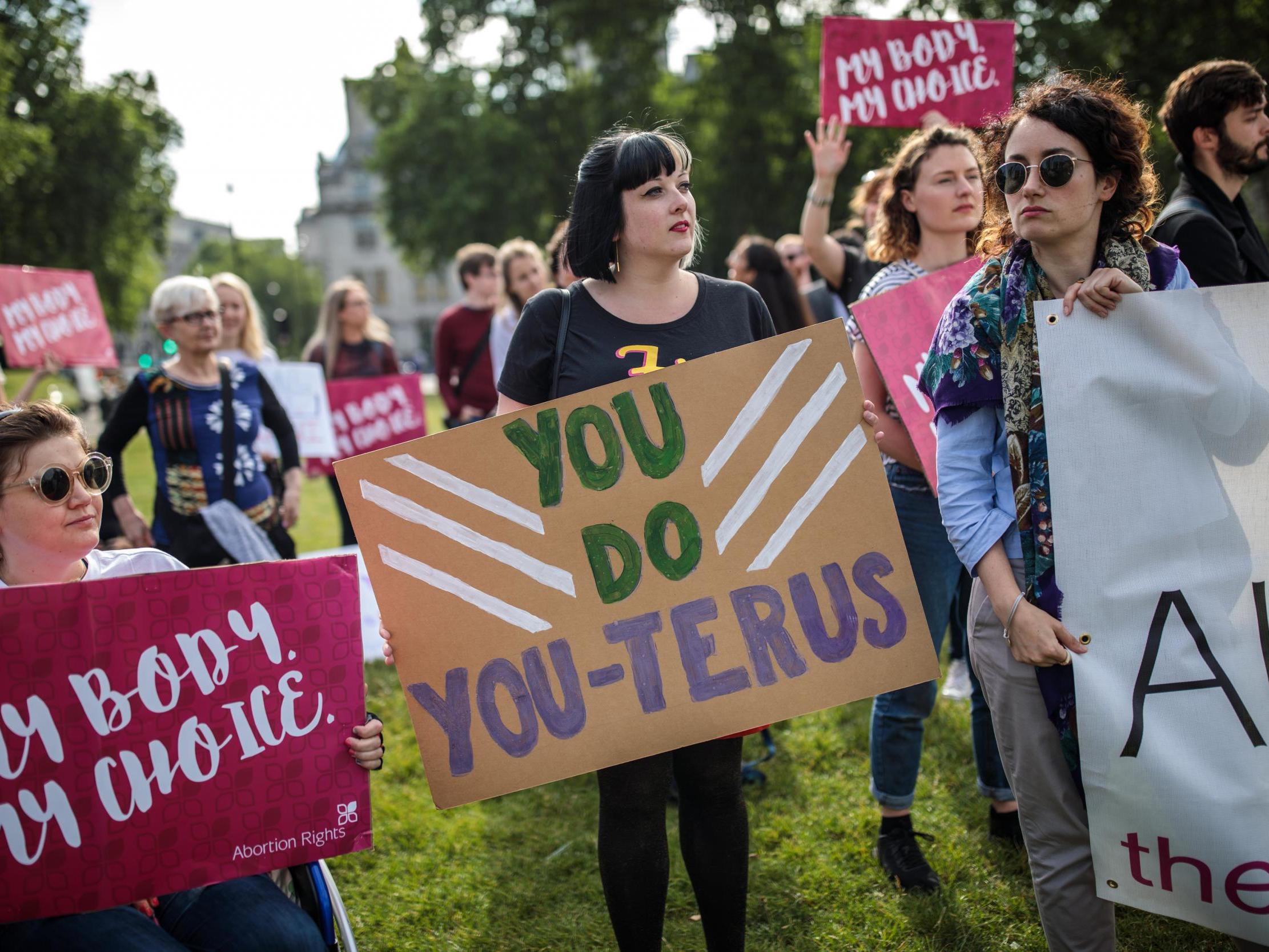Northern Ireland abortion: More than 170 politicians sign letter calling for reform
Group says it is an issue of protecting women's human rights and honouring the Good Friday Agreement

Your support helps us to tell the story
From reproductive rights to climate change to Big Tech, The Independent is on the ground when the story is developing. Whether it's investigating the financials of Elon Musk's pro-Trump PAC or producing our latest documentary, 'The A Word', which shines a light on the American women fighting for reproductive rights, we know how important it is to parse out the facts from the messaging.
At such a critical moment in US history, we need reporters on the ground. Your donation allows us to keep sending journalists to speak to both sides of the story.
The Independent is trusted by Americans across the entire political spectrum. And unlike many other quality news outlets, we choose not to lock Americans out of our reporting and analysis with paywalls. We believe quality journalism should be available to everyone, paid for by those who can afford it.
Your support makes all the difference.More than 170 politicians have issued a plea for the British government to reform Northern Ireland’s abortion laws.
The group, which comprises of Conservative, Labour and Lib Dem MPs and peers, Stormont Assembly members and Irish politicians, said it is an issue of protecting women’s human rights and honouring the Good Friday Agreement.
Nearly 1,000 women and girls were forced to travel to Britain for safe terminations in 2017, while others had to take illegal abortion drugs at home, according to the group.
Calls for Northern Ireland’s abortion laws to be reformed have been heightened after a referendum in the Republic of Ireland resoundingly backed liberalising legislation south of the border.
Northern Ireland is now the only part of Europe apart from Malta where abortion is illegal.
Downing Street has previously said abortion law is a devolved issue, however, the absence of a power-sharing agreement at Stormont has placed pressure on Westminster to act.
Theresa May’s allies in the Democratic Unionist Party (DUP), on whom she relies for her Commons majority, are staunchly opposed to relaxing abortion laws.
In a letter to The Sunday Times, the group has urged the UK Government to repeal sections 58 and 59 of the Offences Against the Person Act 1861 that make it a crime for a woman to cause her own abortion in Northern Ireland.
They wrote: “This is the first and critical step to ending the treatment of British and Irish women living in Northern Ireland as second-class citizens, who do not enjoy the same access to healthcare as their counterparts do across these islands.
“We therefore call for our respective governments to act to ensure that the spirit of the Good Friday Agreement is upheld and the human rights of the women living in Northern Ireland are respected.”
Conservatives Sarah Wollaston, the chairwoman of the Commons Health and Social Care Committee, former women and equalities minister Nicky Morgan and former party chairwoman Baroness Warsi were among nine Tory MPs and peers to back the calls.
Sinn Fein’s Northern Ireland and Republic of Ireland leaders, Michelle O’Neil and Mary Lou McDonald, also signed the letter, along with Fine Gael senator Catherine Noone, who chaired a committee that recommended changing the law in the republic.
Labour deputy leader Tom Watson, Lib Dem deputy Jo Swinson and Home Affairs Committee chairwoman Yvette Cooper also provided cross-party support to the call.
The number of women travelling from Northern Ireland to have an abortion in England has risen substantially since the government set up a special hotline in March.
A total of 342 women and girls – including at least one 12-year-old – went to England for a termination through the British Pregnancy Advisory Service in the three months since March. This marks a noteworthy increase on the 190 women who travelled to use the same service in the nine months previously.
Additional reporting by Press Association
Join our commenting forum
Join thought-provoking conversations, follow other Independent readers and see their replies
Comments